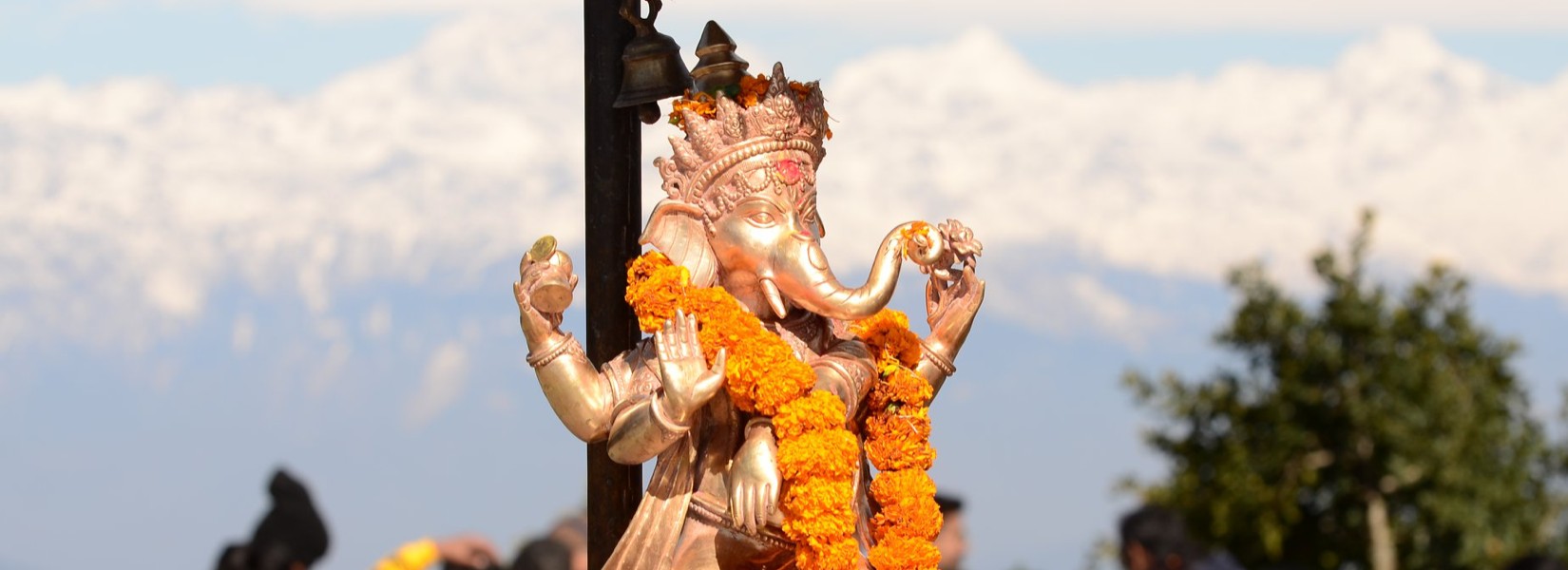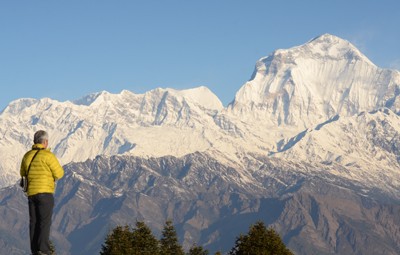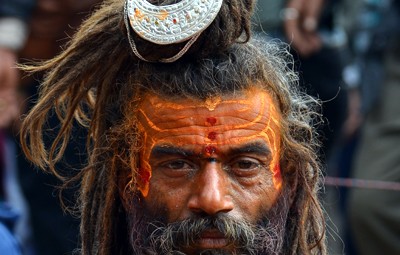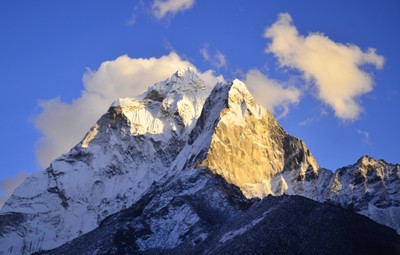Hartalika Teej is one of the popular festivals in Nepal where women get together and enjoy religion, dance, music, and delicious food. The sisterhood festival makes people feel relaxed and secure about their current relationships with others. A woman is a complex creature. Many stereotypes about women and their instincts can be found around the world, but here in Nepal, women are strong enough not to follow them. No matter what it takes or how difficult it is, they do everything by heart. They're not afraid of hard work because they know that every task gets completed with ease and grace.
What is Hartalika Teej and How Nepalese women celebrate Teej Festival in Nepal
Table of Contents
What is Hartalika Teej?
The first major event following the conclusion of the rainy season is called the Teej Festival. The sun is warm, and the sky is clear at that time. Teej is an important and sacred celebration in Nepal. It is also known as the "Nepal Women's Festival" and the "Women's Wishing Festival.". This event is celebrated every year. It usually takes place in the Nepali Bhadra month (August to September in the solar calendar) and lasts for three days. The observance involves fasting, praying to Lord Shiva, bathing in the holy river, presenting traditional performances, etc. On that day, women make a generous dinner and prepare a tasty sweet meal, as well as drinks with each other with fruits. Learn more about Nepal's biggest festival events and celebrations.
History Behind Teej (Hartalika Teej)
The goddess Parvati performed severe penance at the bank of the Ganga in order to have Lord Shiva as her husband. However, Parvati's father, Himalaya, seeing her in this condition, decided to marry her off to Lord Vishnu. When Goddess Parvati shared her misery with her female friend, she decided to help her and abducted her. She took her to a deep forest, where Maa Parvati continued her sadhana, and eventually Lord Shiva took notice of the goddess' devotion and agreed to marry her. Women have since noticed that Hartalika Teej always manages to find a husband of their choice.
Fasting during the Teej Festival.
Fasting (Barta) is observed by married and unmarried women for around 24 hours, during which they go without food and water. Women go to Shiva, Parvati, and Ganesha to worship on this day. A lavish festive spread is cooked, including both sweet and savoury dishes like kheer, sel-roti, thekua, and gujia, among others. It is the day when married women are pampered by their folks in their mother's home and are gifted clothes, jewellery, cosmetics, and other things. Every married woman will be invited by their brother, mother, and father to celebrate this festival at their house. Women apply beautiful mehendi designs to their hands and wear the best of traditional clothes, especially in the hues of red, to celebrate the festival. Women stay awake for the entire night of their fast and sing folk songs and dance along with a group of women.
Many Nepali women believe that wearing red during the Teej Festival will bring good luck. It is said that it brings some magical blessings too, due to its association with life-giving blood and the red color of human beings.
I can't wait for the Teej Festival to come around again. It's time for Nepalese women to count their blessings and celebrate the spiritual day of women. Nepal Women's Day, or Teej, is one of my favorite festivals in Nepal. "Nassa"
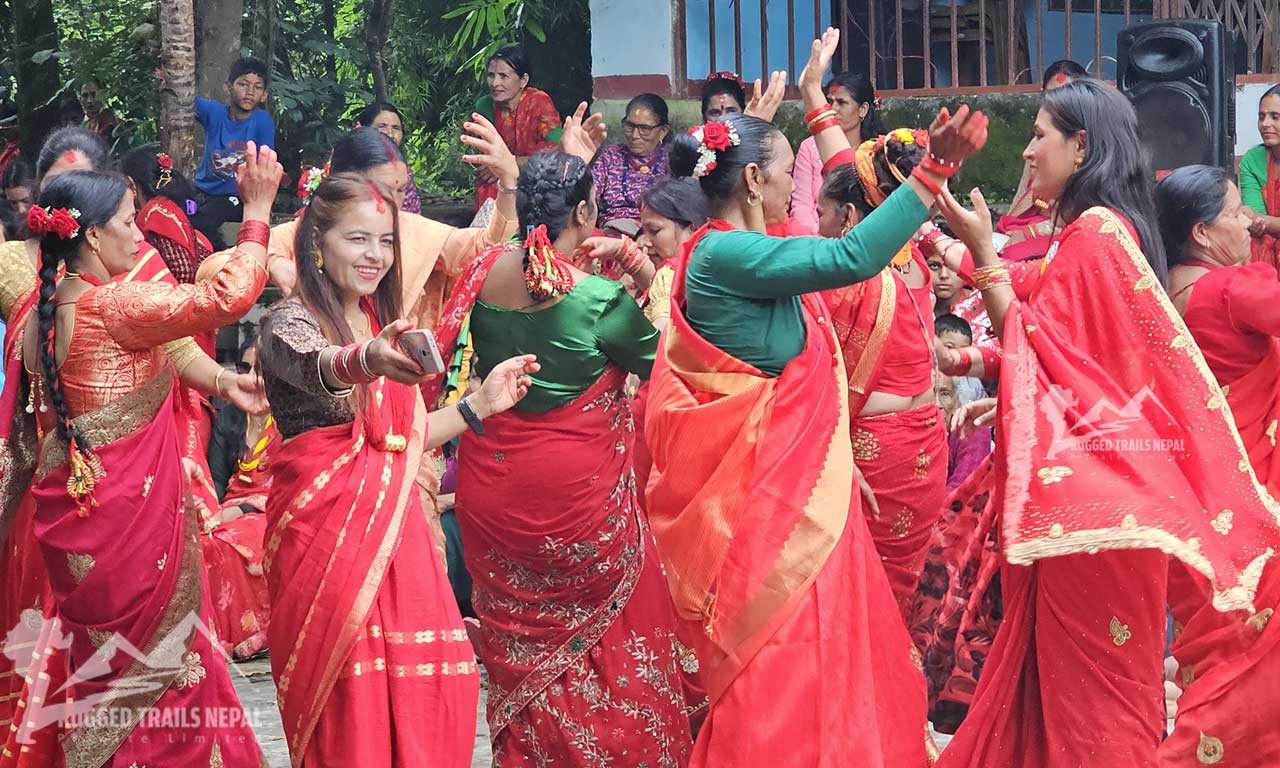
3 Days Of Teej Festival Celebration
- Day 1: Get together with family, and friends.
- Shopping and having a fancy dinner.
- Day 2: fasting and visiting temples.
- Visiting temples (Pashupatinath is one of the biggest Shiva temples), dancing, and singing.
- Day 3: Taking a holy bath
- This denotes the end of the fast for that day. The third, or final, day is crucial for the lady. The name of this day is Rishi Panchami. After doing the Puja from the previous day, the woman honors seven saints or sages, prays to the gods, and bathes in crimson mud that is located beneath the revered Datiwan tree and its leaves. After they are said to have atoned for all of their crimes, this act serves to purify the festival's final ceremony. Therefore, this Teej is a very intriguing Nepali holiday that is significant for all married and single ladies.
| Year | Date |
| 2024 | 6 September |
| 2025 | 26 August |
| 2026 | 14 September |

